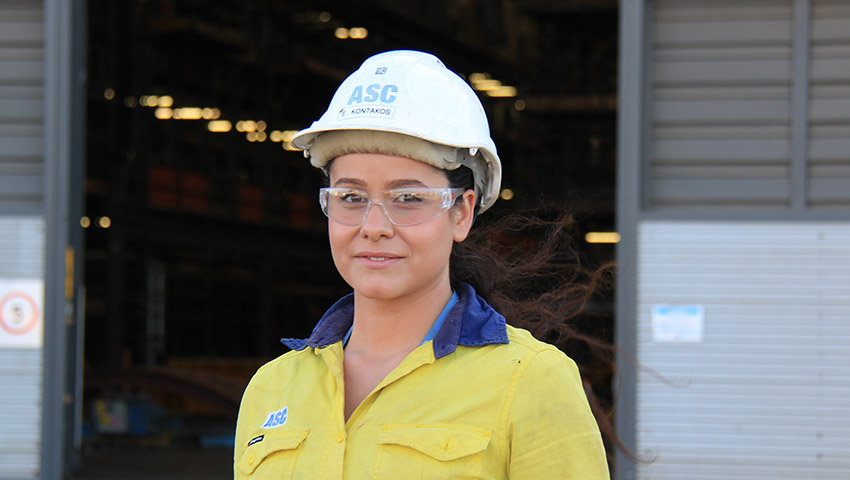TAFE SA has launched a program that sees nine women, all qualified high school teachers, undertaking a nine-week Introduction to Basic Welding Processes course to gain a better understanding of the trade and to help encourage female high school students to consider the benefits and rewards of a career in welding.
As Australian industry ramps up to meet the needs of the Australian government’s National Naval Shipbuilding Enterprise, thousands of trade qualified jobs will be created across the country.
The demand for trade qualified workers will include welders, light and heavy metal fabricators, electricians, mechanics, plumbers and others.
Ian Irving, chief executive of the Naval Shipbuilding College, said developing a national, naval shipbuilding capability to successfully deliver the Enterprise will require a skilled and diverse workforce.
"There should be no perception that there are gender-specific roles within naval shipbuilding. As an industry we are taking the lead to ensure a diverse, equal opportunity workforce is created," Irving said.
The nine-week course is being funded by the Advanced Technology Program (ATP) and delivered by TAFE SA at its Regency Park campus.
Irving added, "Employers will welcome any person who possesses the right training, skills and attitude for the job. The Naval Shipbuilding College applauds TAFE SA and the Advanced Technology Project for getting on the front foot with this innovative approach."
ATP manager Dr Sarah Baker said supporting the basic skills development and face-to-face micro-credentialing of the teachers will help teach welding skills and link these skills to career prospects for many secondary school students.
"This enables more students, both male and female, to ‘see’ where these skills could take them in the future, including naval shipbuilding and other defence industry careers," Dr Baker said.
Director, strategic industry partnerships at TAFE SA, Penny Johnston, said helping provide female teachers with hands-on welding skills and insights into the high level of skill required, and the opportunity for careers on long-term shipbuilding projects, could help foster engagement and uptake in vocational careers by young women while they were still in high school.
Johnston welcomed the program, stating, "Teachers want students to be excited about their future job prospects and career opportunities and assist them to reach their goals. It was very important for the teachers to hear first-hand from the naval shipbuilding industry to help understand the enormous job and career opportunities that are available within the National Naval Shipbuilding Enterprise."
Working on Collins Class submarines and Arafura Class offshore patrol vessels has been a dream come true for ASC’s 25-year-old, metal fabricating apprentice Evyenia Kontakos.
"I think I can say I am the first woman to weld on the hull of a Collins Class submarine in South Australia, and probably Australia. I’m working on some of the most technologically advanced projects in the world today," Kontakos said.
"There’s not a lot of people who can say that. My work is physical and challenging, the hours are great and the pay is excellent."
However, after finishing school, Kontakos and many of her friends weren’t put off searching for a trade qualification and enrolled at TAFE SA to become farriers.
She started on the same path by enrolling for a Certificate II in Engineering (Metal Fabrication) but "fell in love" with welding along the way.
"I have always enjoyed a job that challenges me and has a physical side to it. Welding requires strong hand-eye co-ordination skills and it’s not something that everyone else can do. Once I started on welding I didn’t want to do anything else," Kontakos added.
She sees herself in the same industry 10 years from now, hopefully in a supervisor or quality role, saying, "I don’t want to leave this industry, I love the work and I’ve already bought a house. ASC provide a progressive workplace environment with flexible rosters, opportunities for professional advancement and a great culture.
"After spending time working on a boat or ship, to see it sail out for the last time is incredibly rewarding. I always stay up to date with the news so I hear about where the boat is or what it’s doing around the world and I take a lot of pride in that. I know I contributed to the success of that vessel, and it is helping keep our country, and the people sailing it, safe."


